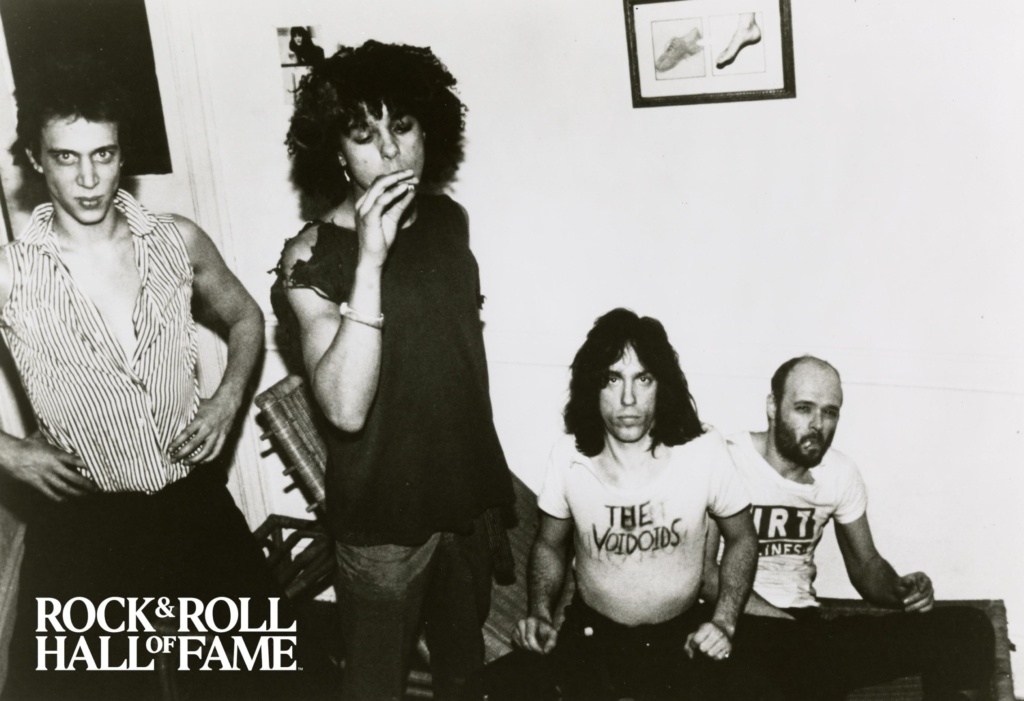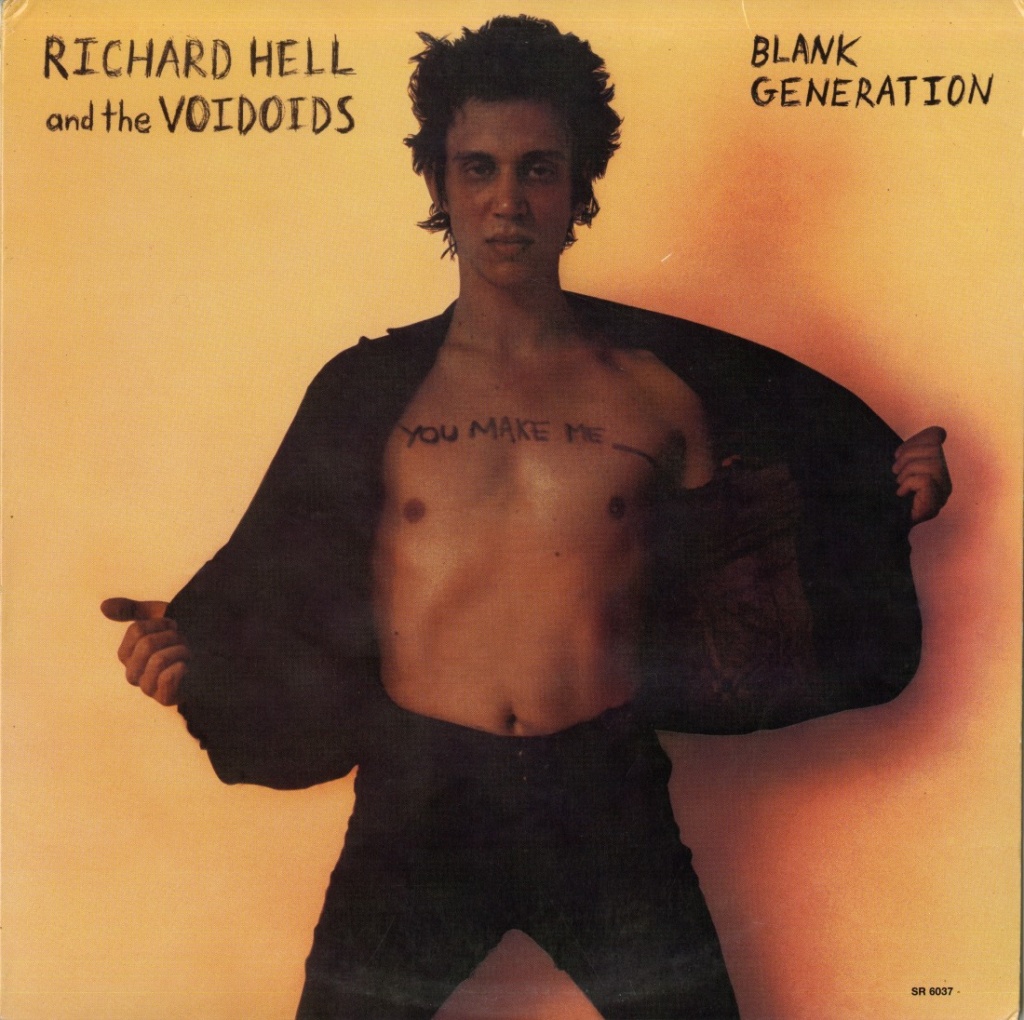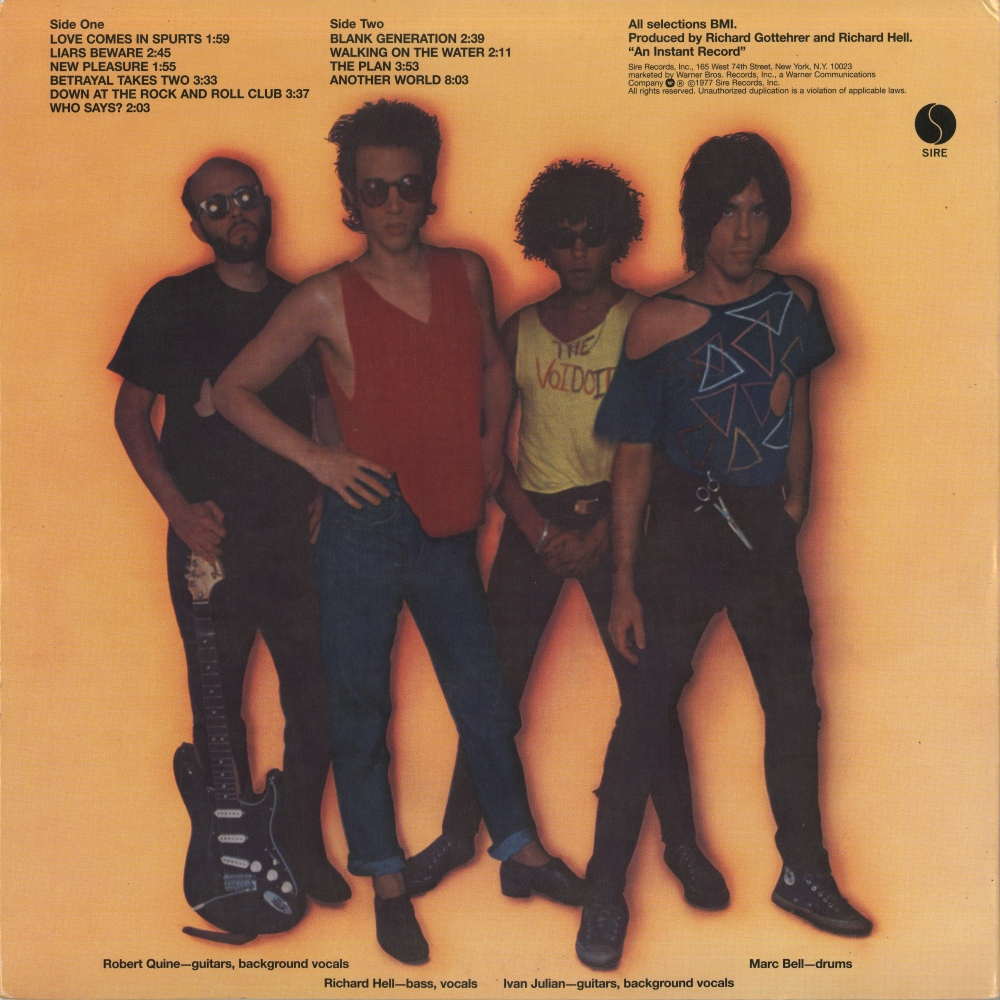

Before forming the Voidoids, Richard Hell had already cemented himself in the burgeoning NYC punk/new wave scene. Hell, who was originally from the suburbs of Kentucky, had already been in the punk band the Heartbreakers and was a founding member of Television. Next to Patti Smith, Hell found himself as a forerunner of NYC punk and new wave.
Hell signed to Sire Records in February 1977, only months after the Ramones. Despite Hell being considered a forefather in punk now, Sire and Warner pushed in its promotional materials that Hell was a part of the New Wave as peddled by Sire and Warner’s joint venture ad campaign.
Hell’s first album for Sire, Blank Generation, is a culmination of his rock and roll dreams. He has always been a leader in the New Wave movement; the Voidoids, are the band he was always looking for.
Sire Records Press Release for Blank Generation, August 1977, Craig Bobby Collection of Promotional Materials, Library and Archives, Rock and Roll Hall of Fame.

Despite the advertising and press coverage, Hell and his band became embroiled in a number of issues that ultimately led to his departure from Sire and the music industry entirely.
As Sire was changing distributors, the Voidoids began to resent their label as the release of Blank Generation was held up. And after a tiring, disastrous tour opening for the Clash, the album was finally released on the last day of the tour, enraging the band.
The delay, at the very least, gave Hell more time to rerecord most of the album to his liking. Below is the original version of “Love Comes in Spurts,” the first track on the Voidoids’ Blank Generation.

Null and Voidoid
The legal dispute that unfolded between Hell and the record labels he was signed to, including Sire Records, is hard fully document. But based on Sire’s archives, the dispute stemmed from the use of Hell’s songs, including “You Gotta Lose,” on Sire’s compilation sampler records.
Hell and his lawyer argued that Hell’s original contract required Sire to ask for permission of Hell to use his recordings on samplers, and that in this instance Sire failed to do just that.
A case filed in 1983, five years after Blank Generation, also accused Sire and Instant Records, the publishing company Hell was signed to, for botching the release of the Voidoids’ first record on top of the aforementioned royalties dispute.
The labels, obviously, didn’t want to humor Hell and his lawyer.
Re: Richard Meyers (Richard Hell) vs. Instant Records, Inc., et al
…I am sorry but we have all become involved in what I believe will prove to be a frivolous action brought by an ex-artist who was originally signed to Sire, and who sole a very small number of albums. Unfortunately, his lawyer seems to enjoy litigation.
Letter from Jonathan Brett to David Berman, Sire Records Collection, Library and Archives, Rock and Roll Hall of Fame.
In the end, Hell got out of his deal with Sire and moved on from music, turning instead to writing. Hell’s story is a foil to the success that other artists like Patti Smith and Talking Heads found.
Despite creative control, Hell’s dissatisfaction showed a chasm in the rosy view Warner painted that all of these small, talented bands in this scene could find commercial and critical success.
“…we sued Sire to get out of our contract. The band members hated Sire… and I felt fucked over by them. So we vanished.”
Richard Hell, from Damien Love’s oral history of the Voidoids